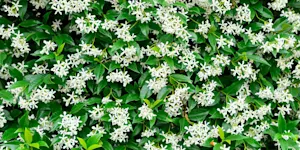What Makes This Word Tick
"Triturate" may sound like a term straight from a science fiction novel, but it's firmly grounded in reality. It's all about grinding, crushing, or pulverizing substances into fine particles, usually in a mortar and pestle. Perfect for those who enjoy a bit of hands-on kitchen chemistry or pharmacology!
If Triturate Were a Person…
Picture someone with endless patience and precision, carefully working over hours to achieve the finest powder. Perhaps a meticulous chef grinding spices or an alchemist concocting an ancient remedy. Never rushed, but always effective.
How This Word Has Changed Over Time
From the Latin "triturare," meaning to thresh or wear down, "triturate" has evolved into a specialized term over the centuries. While it's retained its core meaning of pulverization, it's become more associated with technical and scientific processes than its agricultural roots.
Old Sayings and Proverbs That Use Triturate
Though "triturate" may not grace the pages of many proverbs, the concept is akin to "Leave no stone unturned." It's about thoroughly processing and extracting every possible benefit — much like grinding something down to its finest form.
Surprising Facts About Triturate
You might be surprised to learn that trituration is a critical step in homeopathy, where substances are ground with lactose sugar to achieve precise dilutions. This fine science is not just for medicine—artists use it too when creating pigments for their masterpieces.
Out and About With This Word
While you might not hear "triturate" bandied about at a dinner party, it’s a star in pharmaceutical labs and kitchens. From finely ground spices to life-saving medications, its utility is broad and, dare we say, enlightening.
Pop Culture Moments Where Triturate Was Used
Although not a household name, triturate might show up in a quirky crime drama or a period piece, invariably in a lab full of bubbling concoctions. Think Sherlock Holmes or Breaking Bad, where every little detail matters.
The Word in Literature
"Triturate" tiptoes into mystery novels and scientific treatises, particularly where precise descriptions are valued. It's the kind of word you'd expect to find in a book by Agatha Christie when describing the preparation of a mysterious powder.
Moments in History with Triturate
During the early years of modern medicine, trituration was vital for apothecaries. Imagine an 18th-century chemist in their shop, grinding away to create remedies for the local townsfolk—triturate was undoubtedly part of their daily vocabulary.
This Word Around the World
While "triturate" is specific, cultures around the globe have their ways of pulverizing. In India, spices are often ground fine for flavorful curries; in Japan, matcha tea is anything but powdery. Each culture puts its twist on this fine art.
Where Does It Come From?
Coming from Latin roots, "triturate" first made its way into English through the scientific community and has since been a staple in pharmacological, culinary, and even artistic practices. Its journey from agricultural origins to scientific specificity is a testament to language evolution.
How People Misuse This Word
Sometimes people use "triturate" when they simply mean to grind or crush, missing its precise connotation of achieving a fine, even powder. It’s a subtle difference but one that purists might notice.
Words It’s Often Confused With
Grind: A more general term that doesn't imply the fine consistency that "triturate" does.
Pulverize: Similar, but not necessarily as precise in achieving even, fine particles.
Crush: Often used interchangeably but lacks the connotation of thoroughness associated with "triturate."
Additional Synonyms and Antonyms
Synonyms include "pulverize," "grind," and "mill," while antonyms might be "assemble" or "construct," which convey putting things together rather than breaking them down.
Want to Try It Out in a Sentence?
"The pharmacist expertly triturated the ingredients to ensure the medication's effectiveness."
















